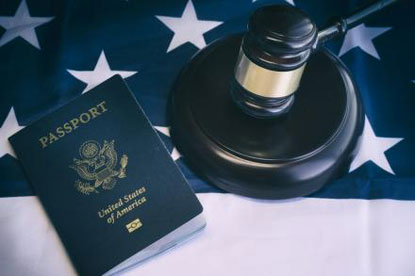Summary: A recent ruling from British Columbia stated that Google must remove references to certain links in its global search engines, causing many to worry about censorship and other such issues.
Around two decades ago, John Perry Barlow, the Grateful Dead lyricist and founder of the Electronic Frontier Foundation, stated that governments have no sovereignty in cyberspace. He wrote, “Your legal concepts of property, expression, identify, movement and context do not apply to us. They are all based on matter, and there is no matter.”
Sorry, Mr. Barlow, but British Columbian courts have ruled otherwise.
CorpCounsel.com reports that the Court of Appeal for British Columbia has affirmed a lower court decision that ordered Google Inc. to block certain sites from the search engine—no matter where the search originated.
The ruling is the first of its kind in Canada, and, according to the Financial Post, it is the most expansive ruling on Internet jurisdiction to date. Many have questioned the power that courts have over the Internet, arguing that it challenges the concepts of free speech, an open Internet, and extraterritoriality. Additionally, it increases the odds that intellectual property owners will file more suits in British Columbia if it holds itself out as a venue willing to exercise power beyond its borders.
David Post, a fellow at the Institute for Information Law and Policy at New York Law School, said, “This touches off a troubling jurisdictional tangle. Different countries have different laws, and issuing global injunctions does not make for a sensible international order.”
The ruling comes from an intellectual property dispute between Equustek Solutions Inc., a network equipment manufacturer, and Datalink Technologies Inc. Equustek argued that Datalink was taking its software, repackaging it, and selling it as its own software. Equustek sued Datalink in Vancouver, alleging trademark infringement and unlawful appropriation of trade secrets.
Ashbury Heights LLC recently filed a lawsuit, alleging misuse of intellectual property.
The court ruled in favor of Equustek, and ordered Datalink to stop selling the products. The court also stated that Datalink had to publish a notice online that redirected purchasers to Equustek. However, Datalink completely ignored the ruling, going so far as to stop responding to the courts and to move its business elsewhere. It ran websites from secret locations and sold infringing products under different names. Datalink depended on Web search engines to direct customers to its websites.
However, Equustek wasn’t going down without a fight. It argued, if customers were discovering Datalink sites from a search engine, why not stop the search engine? Equustek asked the court to issue an injunction that stopped Google from providing search results that led to Datalink’s websites around the world.
Google was not a party in the case and was not charged with any wrongdoing. It voluntarily delisted 345 URLs from the google.ca domain that directed customers to the infringing products.
However, the court stated Google needed to do more. It granted the injunction, and told Google to delist the sites around the world from hundreds of country-specific engines, including Google.com.
Google appealed, arguing that the court had exceeded its jurisdiction. It also argued that it improperly operated against an innocent nonparty, and that it had an impermissible extraterritorial reach.
In February, Canada decided to legalize doctor-assisted suicide.
However, in June, the Court of Appeal for British Columbia upheld the court’s decision, creating what many call a slippery slope.
Post commented, “It’s a slippery slope. Are more countries going to feel empowered to issue worldwide injunctions against Google and other search engines? Will they mandate global online censorship?”
Countries do sometimes make extraterritorial legal claims, but they cannot be enforced unless the person or company has a presence or assets in that country. Google argued that because it had no operations or employees in British Columbia, it could not be subject to an injunction issued by British Columbian courts. However, the judges argued that because Google gathers data in the province and sells advertising to users and companies there, the injunction was proper.
Vera Renieri, a staff attorney at the Electronic Frontier Foundation, said, “The ramifications of this logic are huge. Based on the court’s reasoning, there is no place on earth that Google would not be subject to a jurisdiction.”
Google further argued that courts cannot exerciser power over its international operations using their domestic laws because it would lead to restrictive and conflicting orders. The court disagreed again, stating that if issues do arise, it is because Google operates on a global basis, not because there are issues with the law.
Justice Harvey Groberman wrote in the opinion, “Google raises the specter of it being subjected to restrictive orders from courts in all parts of the world, each concerned with its own domestic law. I agree with the chambers judge that it is the worldwide nature of Google’s business and not any defect in the law that gives rise to that possibility.”
Countries have asked for sites to be removed for dozens of reasons. Under the Digital Millennium Copyright Act in the United States, courts can order search engines to remove infringing content. In France, where displaying Nazi paraphernalia is illegal, Yahoo Inc. was sued for showing Nazi artifacts on its auction website. Since Yahoo had operations in France that could have been shut down, it agreed to ban the sale of any Nazi items.
The European Court of Justice has even ruled that search engines may be ordered to remove links throughout Europe if individuals believe they infringe their privacy rights—even if the information is public record and factual. Under France’s “Right to Be Forgotten” law Google must remove links to certain sites around the world.
Google and Oracle have been fighting about the use of code lines.
Richard Stobbe, an attorney and editor of IPBlog.ca, a blog that discusses intellectual property and Internet laws in Canada, said, “The idea that courts issue orders with extraterritorial jurisdiction is not new. But this is a first for Canada, and you have to wonder where it will lead.”
Many attorneys also feel that when attorneys begin forum shopping for the best places to file their cases, they will turn to British Columbia as the place to file infringement suits. Stobbe remarked, “Rights holders will definitely take a second look at British Columbia, which could become popular much like the Eastern District of Texas. Lawyers may rush to British Columbia, knowing that if they can win on the merits, they can seek an injunction against Google.”
The International Federation of Film Producers Associations and the International Federation of the Phonographic Industry, which are both groups that represent the film, television production, and music recording industries, actually argued that the court’s order against Google was proper. Of course, these groups are very concerned about online infringement.
Robert McConchie, an attorney who specializes in trade libel, media, privacy, defamation, and Internet law, said the ruling could impact freedom of speech and the Internet. Those who believe they have been defamed, he explained, could seek a worldwide injunction against search engines in British Columbia.
Michael Geist, a law professor at the University of Ottawa who specializes in Internet law, blogged, “What happens if a Russian court orders Google to remove gay and lesbian sites form its database? Or if Iran orders it remove Israeli sites? The possibilities are endless, since local rules of freedom of expression often differ.” Tech Dirt added that China doesn’t want anyone to know about the Tiananmen Square protests, so does that mean that all references on the planet should be removed?
The judges did note, “Courts should be very cautious in making orders that might place limits on expression in another country. Where there is a realistic possibility that an order with extraterritorial effect may offend another state’s core values, the order should not be made.”
For now, Google is reviewing the judgment closely and has not decided whether or not it will appeal. McConchie said, “If it does, I’d expect that our Supreme Court will hear it. And it will be closely watched.”
Source: CorpCounsel
Photo credit: nationalrighttolifenews.com







































